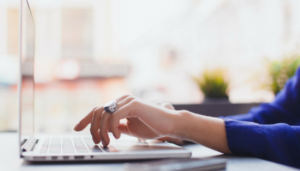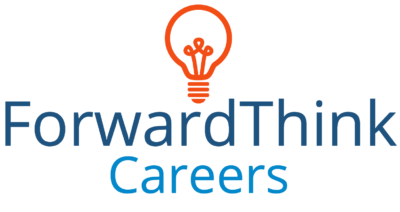

We work pretty hard to make sure we’re up-to-date with our clothes and hairstyle. Heck, even keeping up with the latest food fads can take some work. (Kale/goji berry/hemp milk smoothie, anyone?) But, as job seekers, we often forget that our resume (yes, our resume) can seriously date us.
Like everything else in life, resume trends come and go. (Usually for good reason!) So take a look at this list and make sure your most critical job search document isn’t partying like it’s 1999. Let’s ax items STAT!
#1 – Your Full Address
With privacy concerns on everyone’s mind, there’s no need to include your full address. A city, state and zip code is sufficient…or the Resume Police may come knocking down your door.
#2 – A Silly or Unprofessional Email Address
The email “beachbum26@yahoo.com” probably isn’t going to paint you in the best light. A better route is to create an email address that includes your full name. Also, watch those outdated email providers like Hotmail and (gasp) AOL.
#3 – An Objective Statement
You used to be able to get away with a generic “seeking a lucrative career in healthcare with opportunity for advancement.” But those days are over. (Are we really that surprised?)
What we realized is that objective statements don’t help the job seeker or the employer, because they focus too much on what the job seeker wants and not enough on what he or she brings to the role. Instead, use a professional summary that includes relevant keywords from the job description.
#4 – Overused Buzzwords
While you’re writing that professional summary, watch out for these eye roll-inducing cliches:
“Results-driven,” “team-player,” “hard worker,” “synergistic,” “self-starter,” “excellent communicator.”
Guilty? You’re not alone. Instead, focus on your hard skills and quantifiable accomplishments.
#5 – Paragraphs
With recruiters and hiring managers spending fewer than 10 seconds skimming your resume, give their eyeballs a break by avoiding large chunks of text. Concise, bulleted statements (no longer that 1.5 lines) are the easiest to read quickly. ‘Nuff said.
#6 – Irrelevant Skills & Duties
Your resume is a marketing device, not a historical document. You’re not required (or advised!) to include everything you did at every job. So, pare your bullet points down to 4-6 of your most relevant achievements as they pertain to the job you’re applying for. Everything else can go!
#7 – Vague or Wimpy Bullet Points
While we’re on the topic of bullet points, your word choice matters! Bullet points that start with “responsible for” or “assisted with” don’t make a strong impression.
Instead, craft each bullet point as a quantifiable accomplishment statement. Start it with an active verb and include metrics when possible. Here’s an example:
Redesigned email marketing campaign, increasing open rates by 20%.
#8 – Lies, Lies, Lies
But as you’re creating those rock-star bullet points, don’t get too carried away and cross over to the world of “air quotes.” You need to be accountable to everything you write on your resume and assume you’ll be asked follow-up questions in the interview. So no fibbing!
#9 – Work History Beyond 15 Years
Unless it’s extremely relevant to the role you’re targeting, most employers won’t see work experience beyond 15 years as pertinent. What’s more, including your entire work history can lead to age discrimination — so pick and choose wisely.
#10 – Irrelevant & Short-Term Positions
Dovetailing on #9, your stint as a bartender at TGIFriday’s really isn’t going to help you land that account manager position. Hiring managers are quickly trying assess your fit for their specific opening, so any roles that aren’t aligned should be given the heave ho!
#11 – Small Margins & Teeny, Tiny Font
That “one-page resume” rule? Totally dead. So no need to cram it all onto page 1. Granted, if you’re a new grad or only have a few positions are under your belt, you probably don’t need to go beyond a single page. But don’t sacrifice readability. Hiring managers can only squint so hard before they hit “delete.”
#12 – College Graduation Dates or GPA
If you’re a recent grad with a 3.8 or higher, it may serve you to keeps these stats on your resume, but everyone else can let them go.
#13 – Hobbies – Especially Strange Ones
Yes, career experts are constantly telling you to “stand out,” but you want to do so for the RIGHT reasons. Mentioning you’re a Dungeons & Dragons fanatic or how much you love raising parakeets won’t exactly score you any points. Even listing out traditional hobbies is a waste of precious resume real estate. So, save the small talk for the interview.
#14 – Salary Information
A BIG no-no. You never want to reveal your current or previous salary on your resume. The salary discussion should come much, much later on.
#15 – References
Listing out your references or even writing “references available upon request” will make your resume look a bit aged (and not like a fine cheese). HR will give you the head’s up when they need your references — usually much closer to an offer.
#16 – Silly, Outdated or Ornate Fonts
If your resume starts to resemble a comic book or a wedding invitation, you’re in big trouble. Stick to crisp, clean, san serif fonts like Arial, Verdana, Calibri and Helvetica.
#17 – Headers, Footers, Tables, Graphics, Text Boxes & Photos
Yes, my artistic souls, your creativity is appreciated…but just not on a resume. It’s not that hiring managers don’t appreciate some visual appeal — they do. The problem resides with the applicant tracking system (ATS) that screens your resume and very often can’t read these little extras. Dare to be dull!
So there you have it. Even though “Extreme Resume Makeover” probably won’t be hitting Bravo anytime soon, you can write your own script and give your favorite document that much-needed update.



